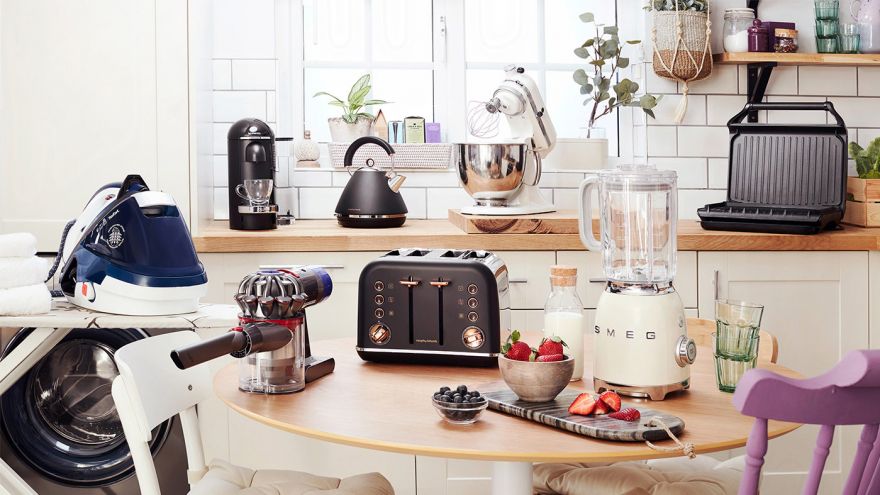Now that we’re spending more time at home, our appliances have been harder at work than usual. You’ve probably noticed a considerable increase in your utility bills. That means your maintenance costs have likely jumped up, too.
Now that some companies may consider making the remote work setup permanent, you might have a lot on your plate with regard to maintaining your appliances this summer.
You’ve likely gone through the pain of appliance maintenance in previous summers, so take this article as your refresher. Besides, you might discover some new tips and prolong the lives of your appliances in turn.
That said, pay the most attention to these appliances as the hot months carry on:
-
Table of Contents
Refrigerator
During warm weather, the condenser coils of the refrigerator work harder than in normal temperatures. The hotter it is in your kitchen, the more energy the coils will consume. To ensure that your refrigerator won’t break down, take note of these preventive maintenance measures:
- Clean the condenser coils. Since they’re at the back of your unit, you don’t see them and thus may forget about them easily. With time, the condenser coils collect dust, which may form blockages. That will force your refrigerator to work harder and use more energy to create cool air. Hence, by keeping the condenser coils clean, you will allow the refrigerator to work like normal. As a result, you save energy costs.
- Avoid opening the refrigerator doors too frequently. If you have kids, teach them about responsible refrigerator use. Opening and closing its door frequently reduce the cool air inside, affecting the quality of its contents. Its cooling function may break down altogether, requiring repairs on the condenser coils.
- Avoid putting hot food inside the refrigerator. Again, exposing the inside of your refrigerator to hot temperatures disrupts its cooling function.
- Maintain recommended cooling settings. Making the temperature far higher or lower than what’s recommended will force the condenser coils to work overtime.
Thankfully, refrigerators typically last long and don’t break down easily. But if you don’t use yours responsibly, it can wear out faster, making it susceptible to damage.
-
Air Conditioner
Summer just started, so your A/C has probably been used every day since. Be careful, though, because A/Cs tend to be vulnerable to extreme heat. When temperatures rise and humidity increases, the A/C has to work twice as hard to control moisture levels in the air.
To avoid breaking down your unit, invest in a dehumidifier. That will help ease some burden from your A/C. As with your refrigerator, clean the A/C’s condenser coils as well. Most importantly, replace the filters as per the manufacturer’s instructions, or more often if you use the unit daily. Common A/C issues are often due to clogged filters, so replacing them regularly is crucial.

-
Heater or Furnaces
Your heating units worked hard last winter and spring. Since you still need them for hot showers or baths, check if they’re still clean and if the wiring is still intact. Dirt in furnaces or heaters may cause long-term damage, so make sure you routinely replace their filters if they’re clogged with debris and dust. Wiring issues, on the other hand, require professional involvement. If you spot disconnected or loose wires in your unit or any other sign of serious damage, call a furnace or heater repair expert immediately.
-
Washer and Dryer
You tend to change into fresh clothes more often during the hot months, so your washer and dryer will deal with heavier loads during laundry days. The unit will consume more energy to wash more clothes, making it prone to overheating.
There are two steps to maintaining a washer and dryer during summer. First, use cold water instead of turning on the unit’s internal heater. Next, skip the dry cycle, and take advantage of the summer heat to hang your wet laundry outside. These two steps will help you save energy and prevent your washer and dryer from overworking.
-
Range/Stove
Summer favorites like potato salads and corn-on-the-cob can be hard on your stove or range. To keep your unit in good working order, ensure that they’re always clean. Remove the oil residue and food debris from the tight corners. Wipe the knobs and the control panel with a light-duty cleaner. If you own a gas range, ensure that the electronic igniter isn’t blocked by food debris. For electric stovetops, remove large food deposits with a straight-edge scraper and scratch-free pad. If the stovetop’s material is porcelain-coated, use a heavy-duty degreaser and a non-abrasive pad to clean it.
By observing these maintenance duties, your appliances will stay in top shape despite the unforgiving heat. Remember to inspect your appliances again when the seasons change, as temperature changes tend to affect their functions.
Tags: remote work setup permanent



